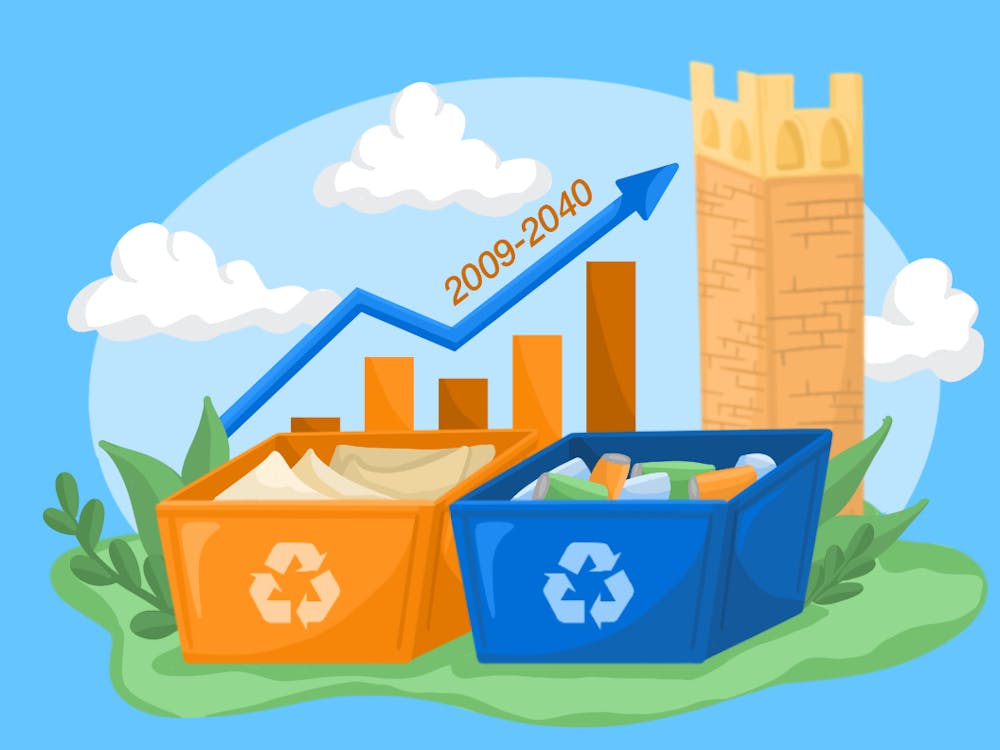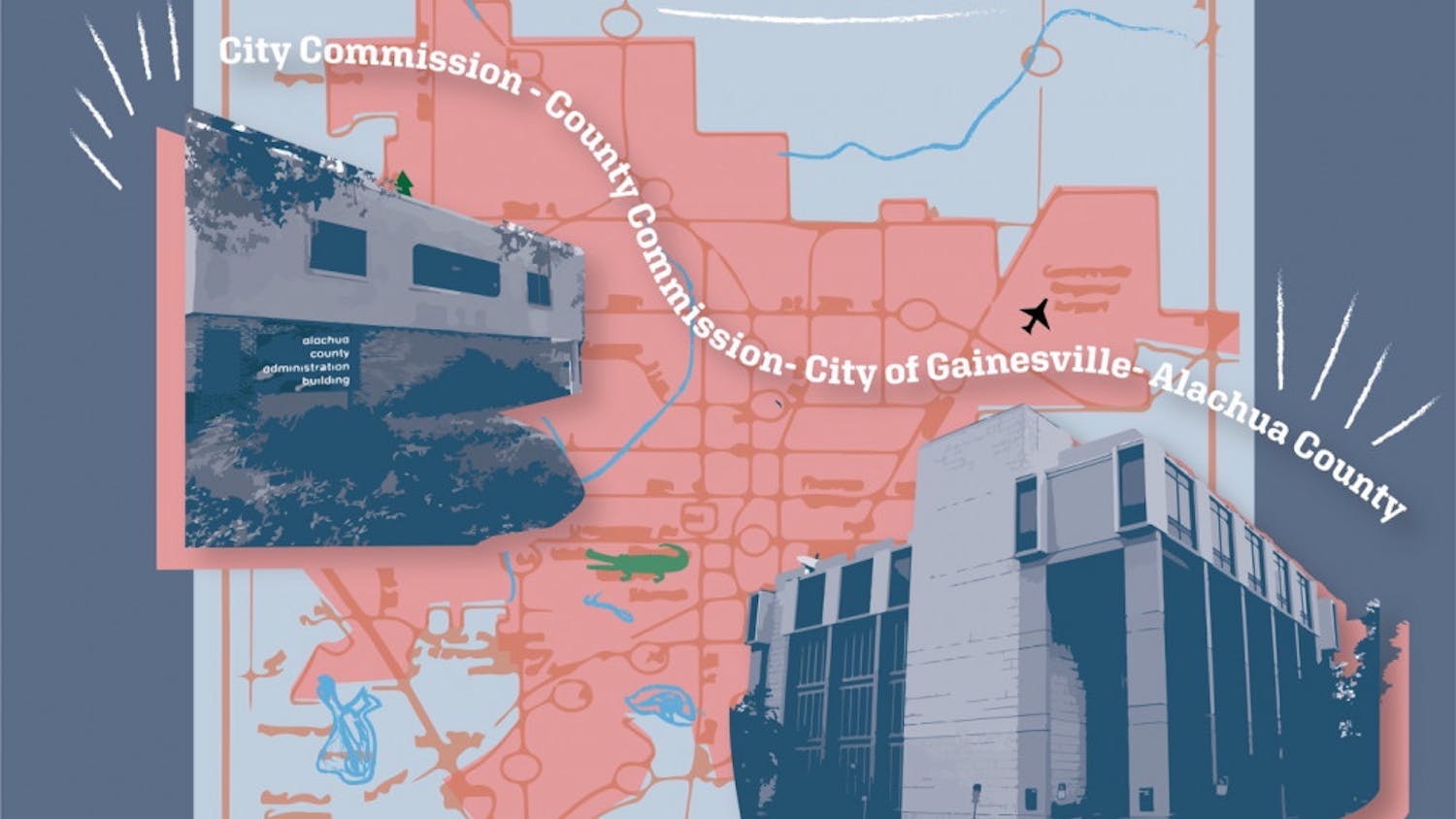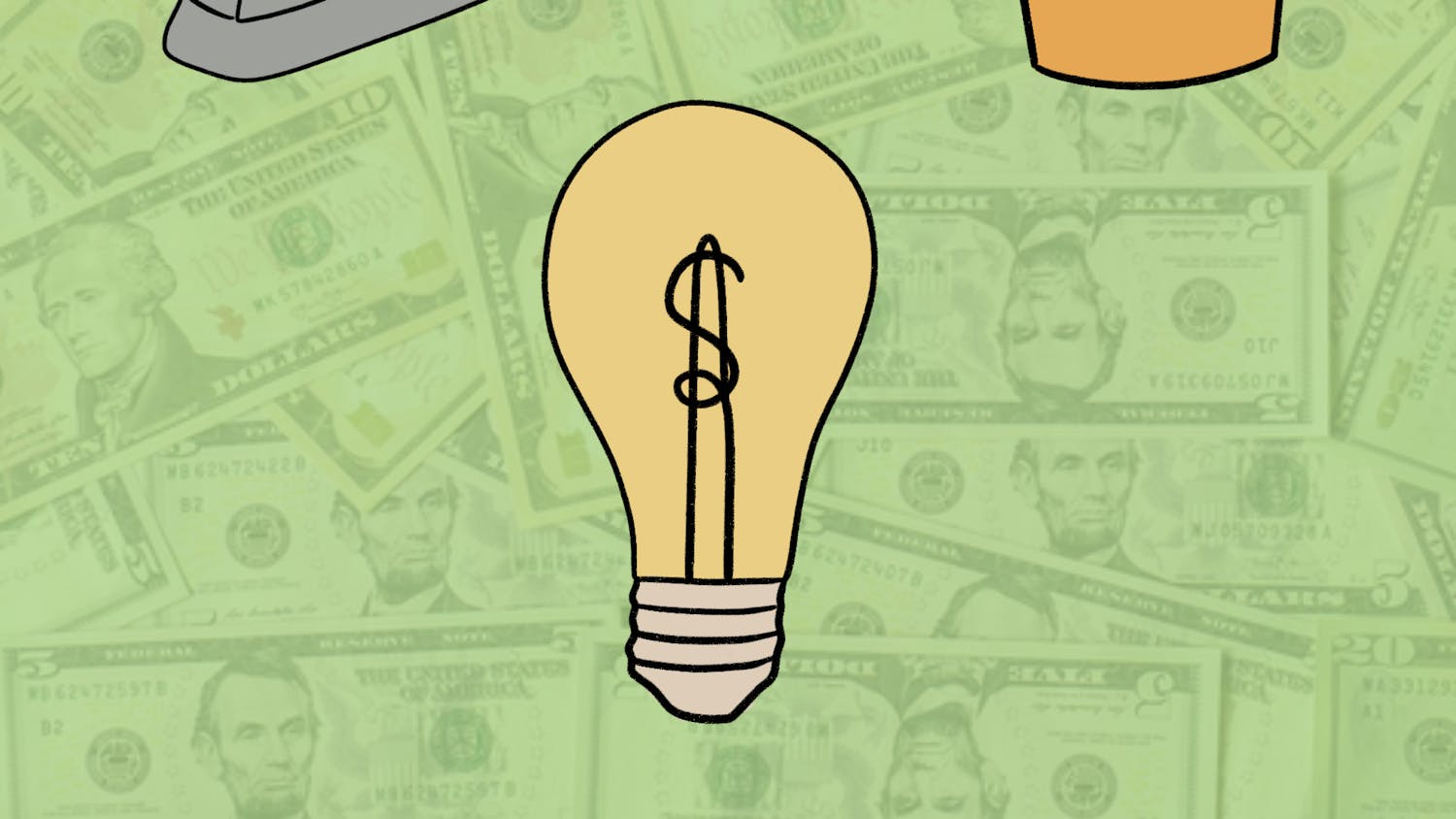Florida is the flattest state in the nation, yet hills line most of its major roadways. Hills made of brown banana peels, old iPhone chargers and stained mattresses.
These hills are landfills, and the highest one in Florida is over 200 feet tall.
With the startling amount of waste becoming more than just an eye sore, three cities in the state have made it a goal to reduce their amount of waste. Gainesville joins Key West and Orlando in the fight to reduce waste and resulting greenhouse gases.
In May, updates to the Solid Waste Ordinance were passed unanimously by the Gainesville City Commission to help reach the goal to be zero waste by the year 2040. For Gainesville, the phrase “zero waste” doesn’t actually mean zero; instead, it’s a 90% reduction in waste diverted to landfills by the year 2040.
Gainesville Mayor Harvey Ward isn’t focused on achieving any specific number goal — rather, it’s something he thinks residents should strive for, he said.
“Percentages matter less to me than actually making sure folks understand what they need to be doing,” said Ward, who recently served his 100th day in office. “How we all work together on this, that is how we get there.”
Municipal solid waste is the third leading cause of human-related methane emissions, according to the Environmental Protection Agency. Methane is a greenhouse gas that contributes to climate change. Reducing that waste means a possible 16% reduction in those emissions.
With over a year to start implementation, Gainesville still has ordinances to write in order to reach its goal of becoming a zero-waste city. So far, as one of the more than 90 cities in the U.S. with zero-waste goals, Gainesville has begun educating its residents through the community-led initiative Zero Waste Gainesville and limiting commercial and multi-family waste.
The ordinances currently in place have banned single-use plastic straws in restaurants, along with making it so plastic utensils are only given to patrons upon request. Gainesville will also match the number of public garbage receptacles with recycling receptacles.
Starting June 1, three new ordinances that regulate how the city handles waste will go into effect.
Two of those ordinances involve commercial food waste. Not only will commercial establishments be expected to separate all of their food waste from other types, but they will also be following the Food Recovery Hierarchy.
The hierarchy states that food on track to become waste must first be diverted to hungry people, such as Gainesville’s homeless population, Ward said. If not to people, it then goes to feeding animals; if not animals, it goes on to industrial uses and then finally composting.
The goal of these ordinances is to keep food out of landfills at all costs.
Waste that doesn’t go to the landfill is either recycled and repurposed or composted to help with soil quality.
Three of the biggest contributing factors to Gainesville’s waste, Ward said, are commercial and grocery food waste, construction waste and the waste resulting from students at UF moving off campus during the end of Spring and Summer semesters.
Future ordinances will focus on repurposing UF student furniture, as well as the better handling of construction materials, Ward said.
While UF’s campus waste isn’t included in the city’s estimates of waste reduction, the university does know about the 90% reduction goal, UF spokesperson Cynthia Roldan said.
“Currently, UF diverts between 40-50% of our waste from landfills, exclusive of construction waste, depending on what is included,” Roldan said.
That’s actually an impressive amount, said Wendell Porter, a waste efficiency expert who was a UF agricultural and biological engineering senior lecturer for 16 years.
While UF is having more success than the city in diverting waste, Ward cites the university’s ability to regulate all of its own vendors. This means that UF has a better handle on the amount of possible waste coming in in order to divert better the actual waste made.
For Porter, there are three things the city and its residents could focus on that would drastically reduce the amount of waste going into landfills: food waste, paper waste and glass and metal waste.
Those three types of waste account for nearly 60% of the U.S.’ waste going to landfills, Porter said. But they’re also some of the easiest to recycle and limit.
These issues need to be pushed more in public education, he added.
“Public education is a key issue,” Porter said, “and I don’t think we are doing a nearly good enough job on that right now.”
The City Commission considered including sustainability education in Gainesville public schools, Ward said, though that’s since been tabled.
Accountability is also a key issue in the effort to divert waste. With a commission that changes leadership every four years, it can be difficult to ensure change is long-lasting over a more than 20-year period.
Michael Heimbach, Gainesville’s sustainability manager of public works, said the commission will always be responsive to what the community wants. And, right now, the community is in support of these ordinances, he said.
“Keeping us accountable is not the issue,” Ward said. “Keeping the community accountable is the issue.”
If elected officials are held accountable, and the community continues to push for ordinances to help the city meet its goal, Porter said, the goal of a 90% reduction is incredibly realistic by 2040.
“You can make huge progress really quick if you really focus on the things that people are already doing but maybe not so well,” Porter said.
These efforts include recycling of all kinds, as well as composting food waste. The issue, he said, is how efficiently the residents of the city conduct their waste handling.
“Not only is it realistic,” Porter said, “I think in the very near future, it’ll be necessary.”
Contact Jake at jlynch@alligator.org. Follow him on Twitter @JakeLyn20488762.
Jake Lynch is a third-year journalism major. He is a South Florida native that loves to spend time with family and friends. He has no idea what he wants to do with his life but he hopes this helps.






